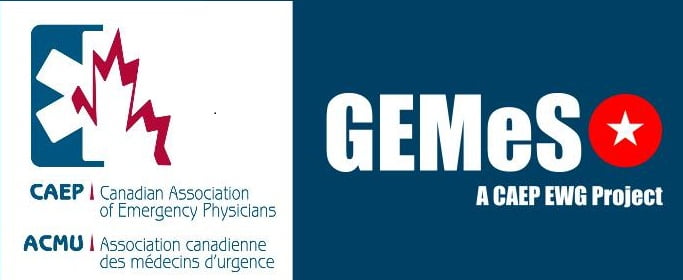Alyssa is a first year Emergency Medicine resident working on a late night shift with Dr. Howard, whom she has never worked with before. After diagnosing a patient with Sepsis NYD, Dr. Howard starts the patient on piperacillin-tazobactam at 4.5 g IV q6h, but forgets to take into account that the patient has a history of chronic kidney disease and needs renal dosing. Alyssa notices this, but is unsure of whether or not she should bring it up with him.
The likelihood of medical learners to notify their staff physician of an adverse event is dependent on how approachable the staff physician is perceived to be. This “Great Evidence in Medical education Summary” (GEMeS – pronounced “gems”), titled “Effects of Leadership Styles and Power Dynamics on Patient Safety” was originally posted by the CAEP EWG GEMeS Team in September 2016 and answers the question: “Is patient safety influenced by leadership styles and power dynamics within medical teams?” A PDF version of the GEMeS summary is available here.
Article Reference
Appelbaum NP, Dow A, Mazmanian PE, et al. The effect of power, leadership and psychological safety on resident event reporting. Medical Educ 2016; 50(3): 343-50.
Why is it relevant to Emergency Medicine education?
Emergency Departments (ED) are inherently risky environments, vulnerable to adverse events and medical error. While evidence suggests such events are relatively common on inpatient wards, Calder et al. confirmed an even higher incidence of preventable adverse events in the ED (1, 2). Emergency physicians should be aware of aggravating and mitigating behaviours that potentiate event disclosure by medical learners to improve patient safety in the ED.
Funding Sources
Internally funded
Study Design and Setting
Cross-sectional survey using a convenience sample of 106 residents from eight different specialities. The study took place in an urban American teaching hospital.
Synopsis
Researchers explored the effect of power distance and leader inclusiveness on psychological safety and the likelihood of residents to report adverse events. It was hypothesized that reduced power distance and increased leader inclusiveness would increase psychological safety and increase the likelihood that a resident would report an adverse event.
In the context of this study, psychological safety is defined as the belief that residents can express themselves without risking negative consequences. Leader inclusiveness exists when a leader’s behaviour indicates an invitation and appreciation for other’s contributions. Power distance is the perceived status discrepancy among individuals in a health care team (3).
Investigators surveyed 106 residents from various programs, including Emergency Medicine, using validated tools to assess power distance, leader inclusiveness and psychological safety. Guided by existing literature, the investigators also developed a tool to measure resident’s intention to report adverse events. Data were examined using factor analysis and path analysis to determine the relationship between variables.
Leader inclusiveness was positively correlated with psychological safety and intention to report events while perceived power distance demonstrated a negative correlation with psychological safety and intention to report. In turn, path analysis revealed that the concept of psychological safety was found to mediate the effect of perceived power distance and leader inclusiveness on the intention to report adverse events.
Conclusion
Researchers concluded that decreasing power distance and increasing leader inclusiveness within health care teams may lead to increased adverse event reporting. They recommend that leaders and educators adopt these concepts in the pursuit of patient safety. Although this methodology does not allow for determination of causality and researchers did not directly measure actual event reporting, this study will likely be the genesis of future research in this area.
References
1. De Vires EN, Ramrattan MA, Smorenburg SM, et al. The incidence and nature of in-hospital adverse events: a systemic review. Qual Saf Health Care 2008; 17(3): 216-23.
2. Calder LA, Forster AM, Nelson M, Leclair J, et al. Adverse events among patients registered in high-acuity areas of the emergency department: a prospective cohort study. CJEM 2010; 12(5): 421-30.
3. Nembhard IM, Edmonsdon AC. Making it safe: the effects of leader inclusiveness and professional status on psychological safety and improvement efforts in health care teams. J Organiz Behav 2006; 27(7): 941-66.
Residents are more likely to report an adverse event if they feel that there is less of a power discrepancy between themselves and their staff physician, or if they perceive that the staff physician will be receptive to their concerns. How would you incorporate this leadership dynamic into your interactions with residents?
[bg_faq_start]More About the CAEP GEMeS
This post was originally authored for the Canadian Association of Emergency Physicians (CAEP) Great Evidence in Medical Education Summaries (GEMeS) project sponsored by the CAEP Academic Section’s Education Working Group and edited by Drs. Teresa Chan and Julien Poitras. CAEP members receive GEMeS each month in the CAEP Communiqué. CanadiEM will be reposting some of these summaries, along with a case/contextualizing concept to highlight some recent medical education literature that is relevant to our nation’s teachers.
[bg_faq_end]



